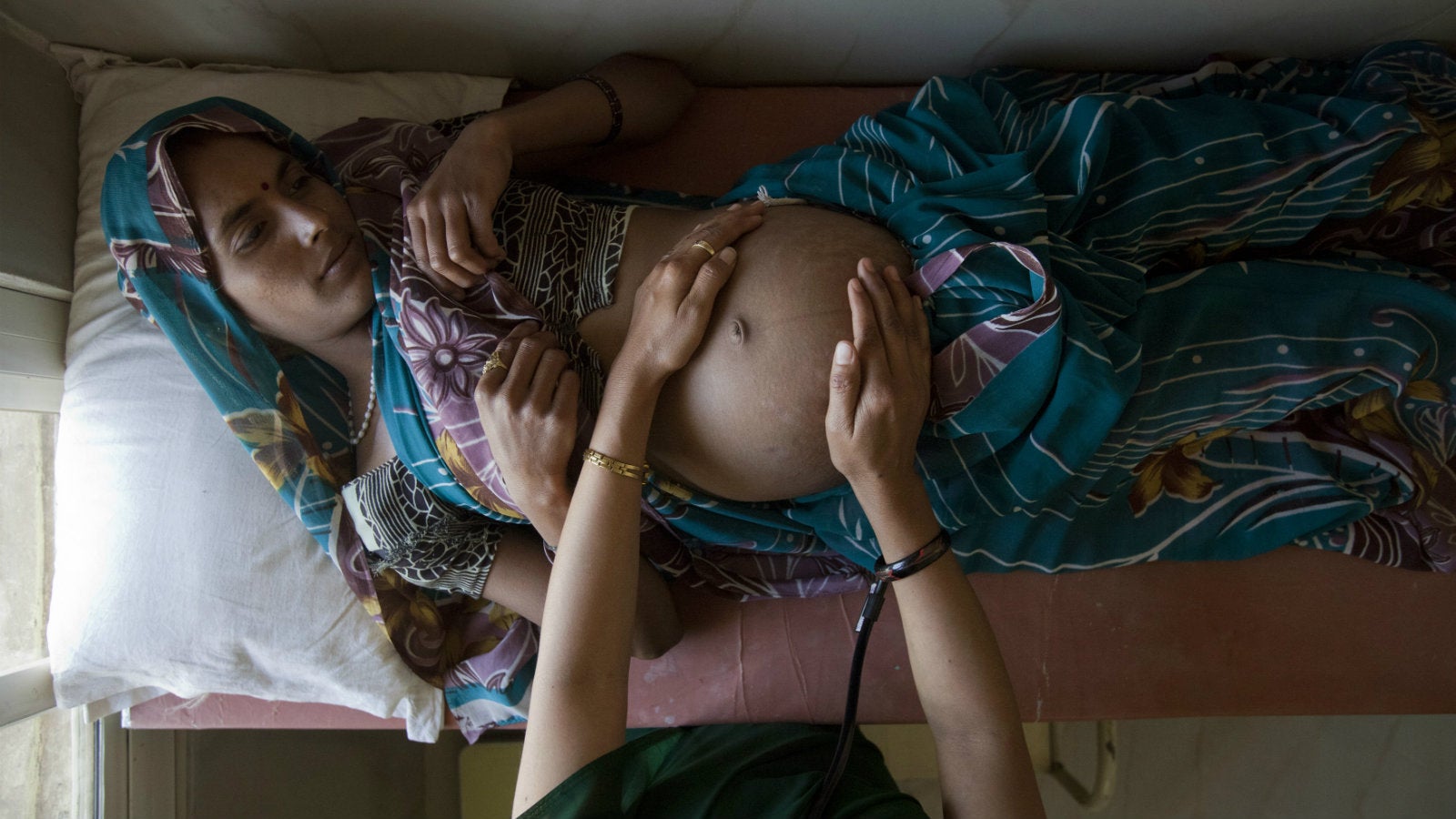Trump’s anti-abortion policies are cutting off funding for maternal health NGOs in India
Non-governmental organisations in India have been asked to self-declare that they do not perform abortions or provide abortion services while submitting proposals to the United States Agency for International Development (USAID). USAID is the body responsible for administering civilian foreign aid given by the US government.


Non-governmental organisations in India have been asked to self-declare that they do not perform abortions or provide abortion services while submitting proposals to the United States Agency for International Development (USAID). USAID is the body responsible for administering civilian foreign aid given by the US government.
In January, soon after he came to power, US president Donald Trump had reinstated the contentious global gag rule that stops all federal funding to international NGOs that perform abortions, provide information on abortions, or advocate for a change in US abortion laws. Such organisations would become ineligible for US funds even for projects that are unrelated to abortions. In March, USAID revised its policy to restrict funding as per the gag rule.
Within weeks, organisations in India that receive or seek USAID funding have been asked to sign self-certifications stating:
“Organization does not provide abortion services, counsel or refer for abortion, or advocate for the liberalization of abortion laws with US Govt. or non-US Govt. funds, including its own funds.”
Assault on women’s health services
Abortion, or the medical termination of pregnancy, has been legal in India since 1971 under certain circumstances. Abortions can be performed in the first 20 weeks of a woman’s pregnancy. Even though abortions are provided free of cost in government health institutions, they account for eight percent of India’s maternal mortality because many are conducted in unsafe conditions by unregistered practitioners, resulting in infections.
Organisations working with women’s health and maternal health are concerned about the new policy. Toeing the USAID line will mean consciously blocking information about abortion procedures and not referring a woman who wants an abortion to a facility that will perform the procedure safely and legally. They will not even be allowed to advocate for safe abortions—an integral part of maternal health and family planning.
Critics of the global gag rule have long said that you cannot separate abortion services from maternal healthcare, family planning, and women’s health, all of which will be badly affected.
“This rule is an assault on both the users and the providers of health services and forces providers to limit options or to reduce access or both,” said Pallavi Gupta, programme coordinator for health at Oxfam India, which works to provide quality health services, including abortion. Unwanted pregnancies have a range of ramifications in communities that Oxfam works with, affecting health, gender dynamics, livelihoods, and human rights.
“Will the (USAID-funded) organisation turn a blind eye to the woman’s need or refuse to provide information about her reproductive rights?” asked Gupta. “By withholding information that is well within the country’s law, this rule makes the organisation a party to the woman’s distress as access to information about reproductive rights is limited and abortion continues to be a taboo.”
Who gets affected?
One of the organisations that receives USAID funding and works with the government’s family planning programme is the international non-profit Jhpeigo that is affiliated with John Hopkins University. Jhpeigo operates in 12 states, including Bihar, Rajasthan, Madhya Pradesh, Jharkhand, Odisha, and Delhi, and provides technical assistance for promoting contraception use and post-abortion contraception, and scaling up contraception-based family planning. However, it does not provide or promote abortion services. A Jhpeigo spokesperson declined to comment for this story.
Among the partners of the USAID-funded Maternal and Child Survival Program is Population Services International, which receives funding for a family planning project called Saving Lives at Birth that involves inserting intrauterine devices after delivery. Marshall Stowell, vice president of external relations and communications at Population Services International, said that the gag rule would not affect the organisation since it does not provide abortion services or counseling.
Many organisations like Ipas and the International Planned Parenthood Federation in India consciously do not accept USAID funding. Ipas works with the central government to provide comprehensive abortion care in India. “These organisations do not want to be held hostage to these anti-abortion rules,” said Vinoj Manning, executive director of Ipas Development Foundation. “Besides, they keep changing every four years when the government changes.”
USAID also works closely with the ministry of health and family welfare. The government’s family planning programme will not be affected, said Dr SK Sikdar, deputy commissioner with the ministry. He said that the government relied on non-profits only for technical assistance. “We hardly depend on foreign aid for our programmes,” he said.
However, the full list of health and family planning organisations that receive USAID funds in India is not available.
A USAID spokesperson said, “As in the past, USAID expects to successfully reprogram any family planning funds in the event an organisation ceases to receive USAID family planning assistance because of the policy.”
When asked about the possibility of USAID-funded organisations having to talk about abortion in a community, the spokesperson said that organisations receiving family planning assistance are expected to abide by the provisions of the gag rule. “We cannot speculate on organisations’ decisions whether to accept those provisions,” the spokesperson said.
Vinod Manning of Ipas said, “When US decides that through their funding they will inhibit Indian agencies from doing anything around abortion, it is contrary to the Indian policy on abortions and therefore an impingement on our sovereignty.”
This post first appeared on Scroll.in. We welcome your comments at [email protected].